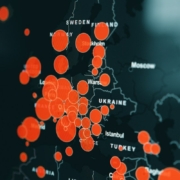WHOIS, one of oldest tools on internet for verifying real identities, is at risk of being killed due to tough data protection with new GDPR regulations.
The General Data Protection Regulation (GDPR) comes into effect in May and is an attempt to strengthen European data protection. However, it is thought that some of the new rights and responsibilities will conflict with existing technologies that have provided transparency on the internet.
What is WHOIS?
The WHOIS protocol enables anyone to look up the contact details of the owner of a domain name. This has over the previous few decades become a key tool for those attempting to trace online wrongdoing to its source. Domain registrations are however commercial contracts, meaning that those making a registration have a right to privacy. This means that the public WHOIS system as it currently exists is incompatible with the principles of data privacy affirmed by GDPR. A further issue is that the GDPR changes to the WHOIS system are likely to affect users across the world, not just in Europe.
The effects:
Many have argued that the change is unlikely to cause major problems. Many registrars have offered the ability to keep details private for a long period of time. This means when buying a domain the registrar simply registers the site in their own name, limiting the ability of researchers to catch criminals. In addition to this law enforcement already has a far wider range of tools available to them to catch criminals than private researchers, including demanding the registration details from the registrars themselves. This therefore means that the changes from GDPR may have a more limited effect than first thought.
However, the information that is available on WHOIS can be useful for more than simply the professionals. It can be used by consumers to check the WHOIS information for particular websites in order to determine whether the information provided on the site is fake. This can therefore prevent consumers from purchasing fake goods.
There is therefore a clear divide in opinion regarding this change. While some member of the public will be in favour of the move towards greater privacy, others want their information to be available on WHOIS so that anyone on their website is able to see who they are dealing with.
To find out more about check out some of the other blogs on GDPR.







Leave a Reply
Want to join the discussion?Feel free to contribute!